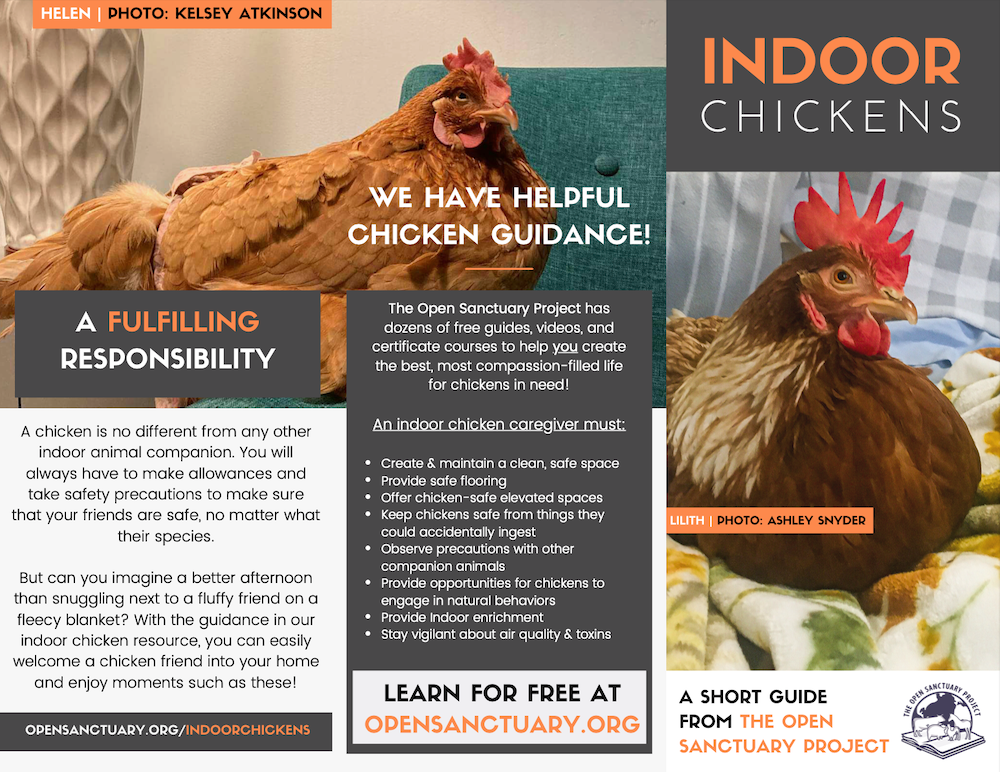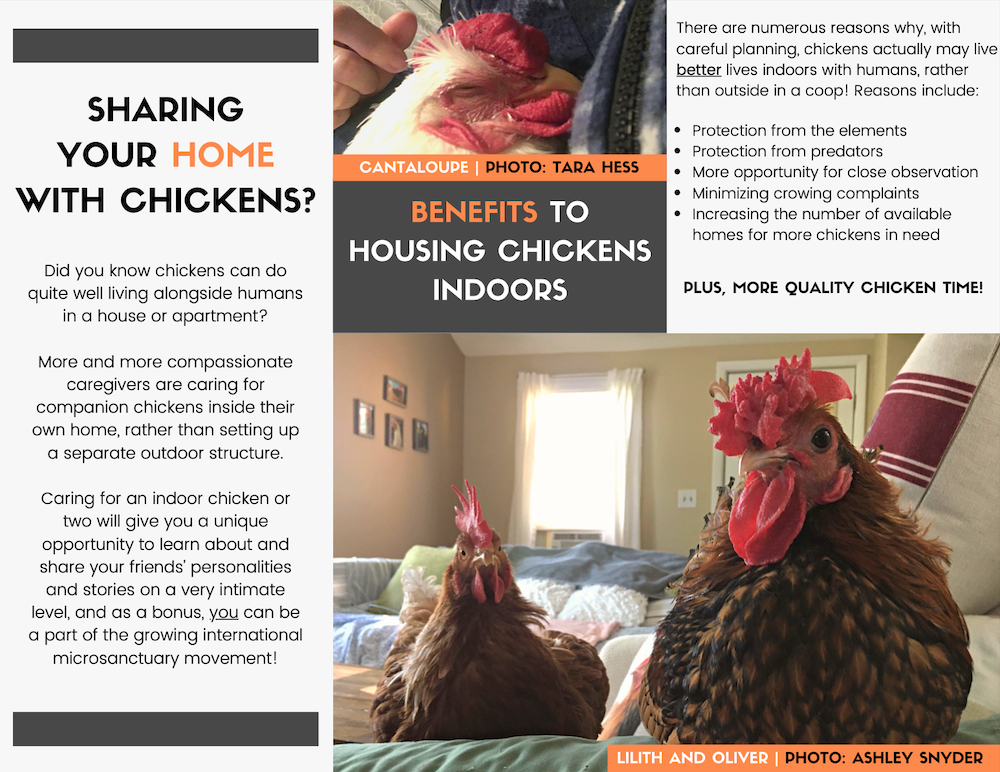

Enter either your organization’s name or your name and email below to download a free brochure PDF that you can have printed out for visitors to your organization who are interested in learning more about the possibilities and benefits of sharing their home with chicken residents who are in need. Physical literature is a great way to relay a lot of information in a pleasing way to curious individuals.
Want To Learn More About Indoor Chickens?
For more information on what to consider when thinking about sharing your home with chickens, check out our resource here!
A4 Formatted Version Of This Brochure
Edgar’s Mission created an A4 version of this brochure! If your organization operates outside of the United States, you can download a printable A4 version with the following form:
We promise not to use your email for any marketing purposes! Would you prefer to access this form in a different way? Contact us and let us know!
How’s This Literature Working For You?
Have you used this brochure at your sanctuary and want to give us your feedback on improvements? Let us know here!
Full Text Summary Of The Brochure:
Here’s The Open Sanctuary Project’s “Indoor Chickens” text summary:
Panel 1: “Indoor Chickens: A short guide from The Open Sanctuary Project”
Panel 2: “Sharing your Home With Chickens?
Did you know chickens can do quite well living alongside humans in a house or apartment?
More and more compassionate caregivers are caring for companion chickens inside their own home, rather than setting up a separate outdoor structure.
Caring for an indoor chicken or two will give you a unique opportunity to learn about and share your friends’ personalities and stories on a very intimate level, and as a bonus, you can be a part of the growing international microsanctuaryA microsanctuary is a small scale community of human and nonhuman (generally “unconventional or farmed”) animal companions, who live together in a chosen shared lifestyle and in commitment to ending the oppression of all beings. Microsanctuaries adhere to the notion that no nonhuman member of the community should “serve a purpose.” Microsanctuaries can exist in any context: rural, suburban, or urban. A microsanctuary can consist of as small a community as one animal and one human caregiver. For more information on microsanctuary please refer to the Microsanctuary Resource Center. movement!”
Panel 3 & 4: “Benefits To Housing Chickens Indoors:
There are numerous reasons why, with careful planning, chickens actually may live better lives indoors with humans, rather than outside in a coop! Reasons include:
• Protection from the elements Protection from predators
• More opportunity for close observation Minimizing crowing complaints Increasing the • number of available homes for more chickens in need
Plus, more quality chicken time!”
Panel 5: “A Fulfilling Responsibility
A chicken is no different from any other indoor animal companion. You will always have to make allowances and take safety precautions to make sure that your friends are safe, no matter what their species.
But can you imagine a better afternoon than snuggling next to a fluffy friend on a fleecy blanket? With the guidance in our indoor chicken resource, you can easily welcome a chicken friend into your home and enjoy moments such as these!
OpenSanctuary.org/IndoorChickens“
Panel 6: “We Have Helpful Chicken Guidance!
The Open Sanctuary Project has dozens of free guides, videos, and certificate courses to help you create the best, most compassion-filled life for chickens in need!
An indoor chicken caregiverSomeone who provides daily care, specifically for animal residents at an animal sanctuary, shelter, or rescue. must:
- Create & maintain a clean, safe space Provide safe flooring
- Offer chicken-safe elevated spaces
- Keep chickens safe from things they could accidentally ingest
- Observe precautions with other companion animalsAnimals who spend regular time with humans in their home and life. Typically cats and dogs are considered companion animals, though many species of animals could also be companion animals.
- Provide opportunities for chickens to engage in natural behaviors
- Provide Indoor enrichment
- Stay vigilant about air quality & toxins
Learn for free at OpenSanctuary.org!”








